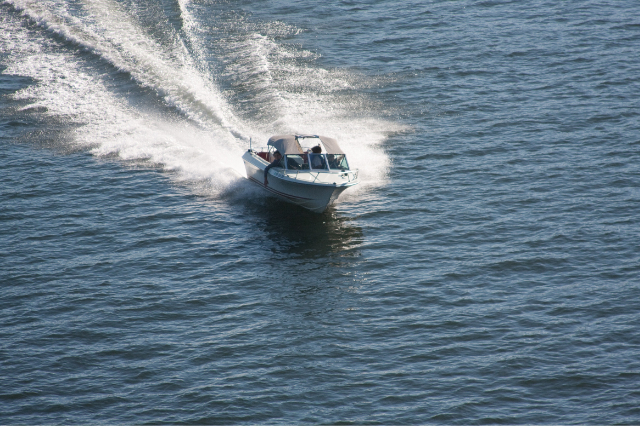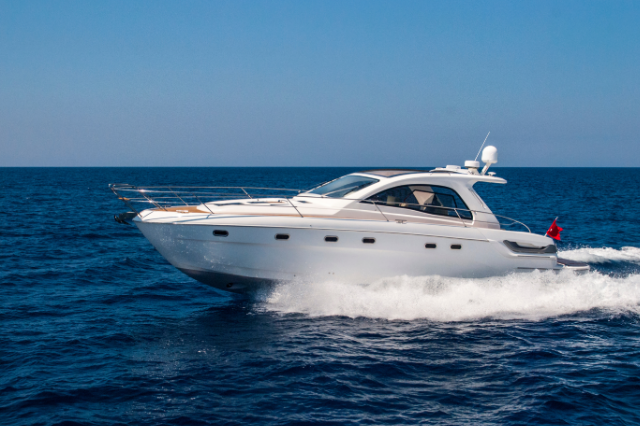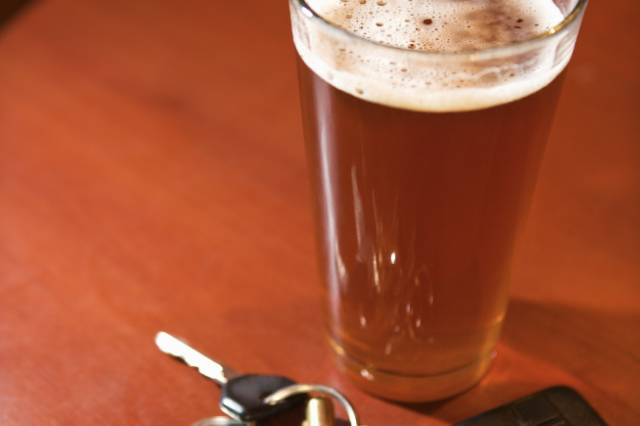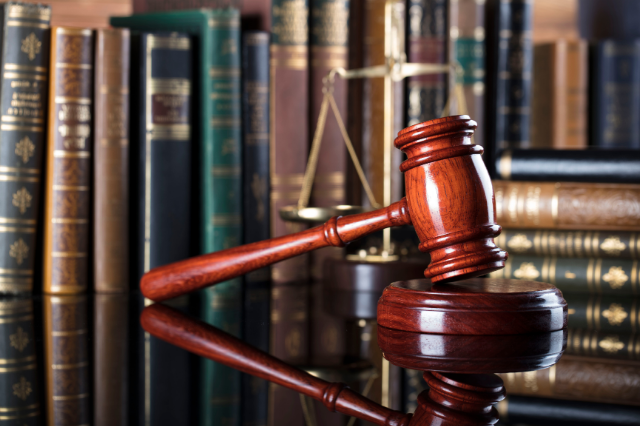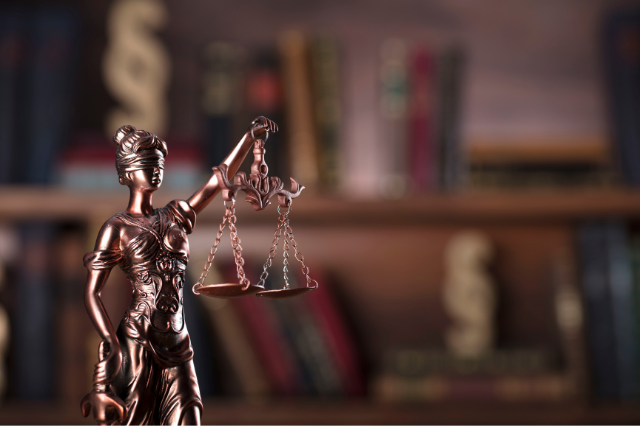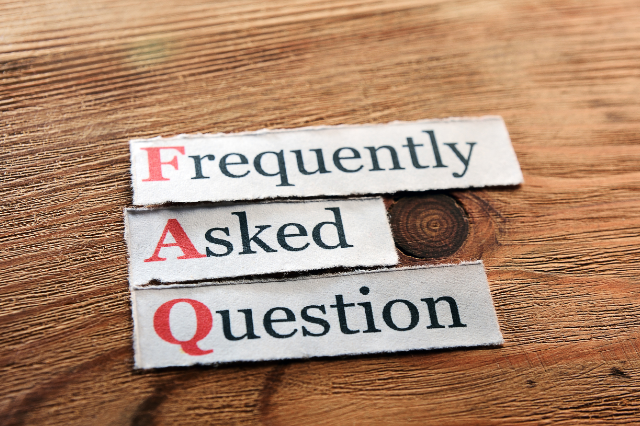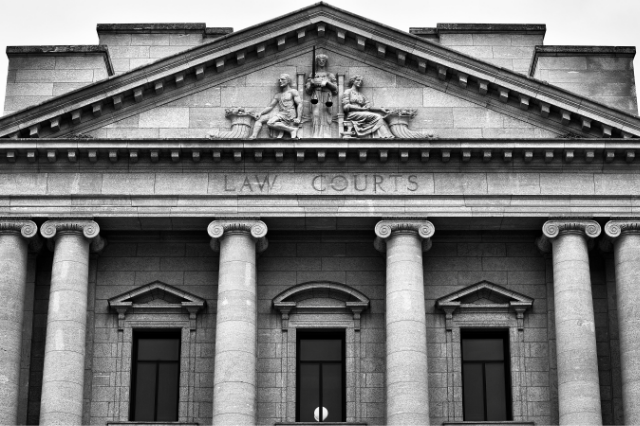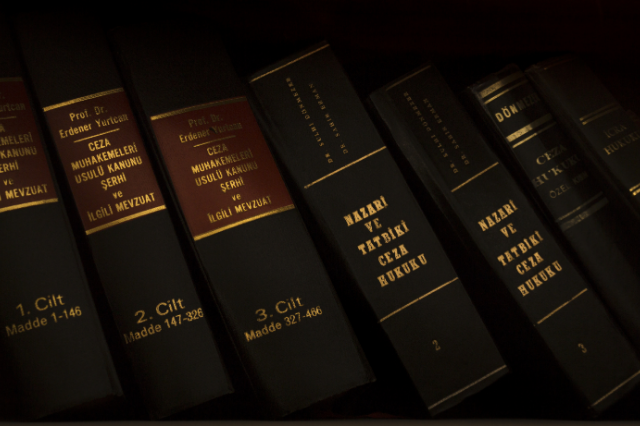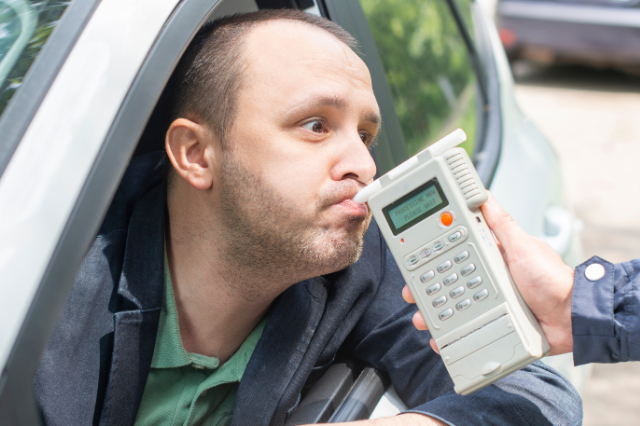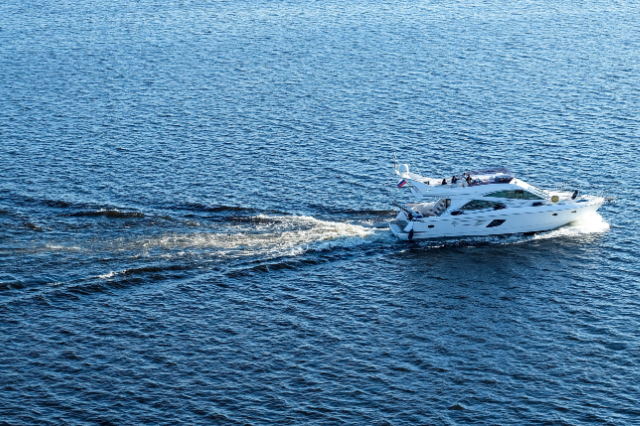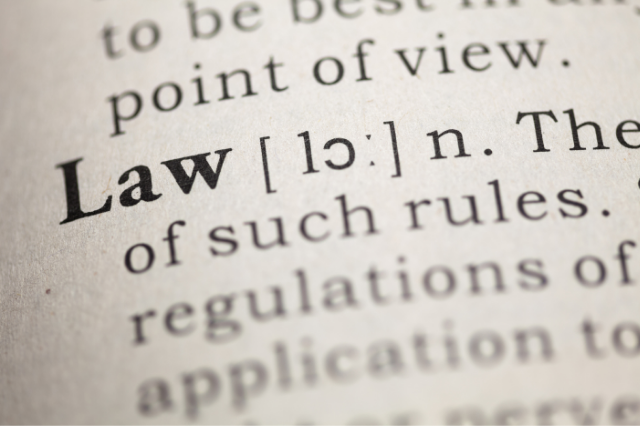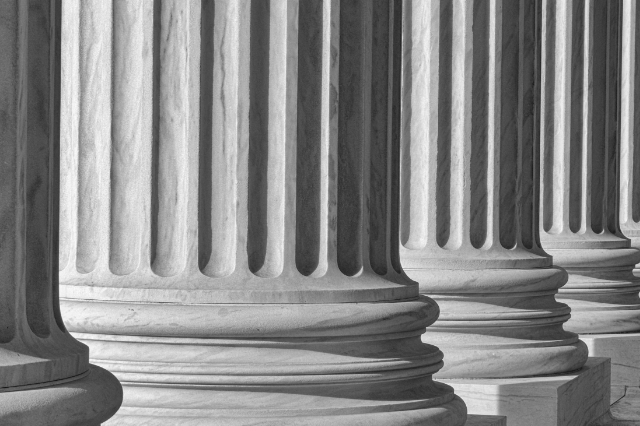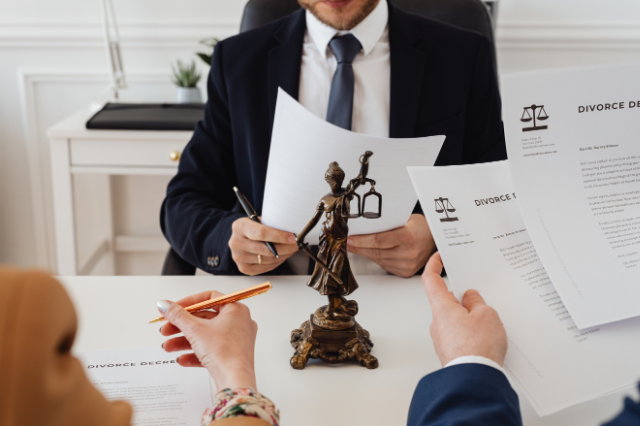Trusted criminal defense lawyer
Understand the legal implications of a Lake Lanier BUI. Conoscienti and Ledbetter provide defense strategies to protect your rights and ensure fair treatment under the law. Learn more about hate crime laws and how we can help.
 Author: J. Blake Ledbetter, Partner, Conoscienti & Ledbetter
Author: J. Blake Ledbetter, Partner, Conoscienti & Ledbetter
Mr. Ledbetter specializes in civil litigation in metropolitan Atlanta, Georgia, and possesses vast experience in wrongful death lawsuits. Mr. Ledbetter was recognized as a SuperLawyers Rising Star in 2018 and 2019 in the area of Civil Litigation. Published on April 1, 2025.

Speak with experienced criminal defense lawyer today, for free.
Lake Lanier BUI Lawyer
If you have recently been charged with operating a boat while impaired on Lake Lanier, you may be feeling concerned about your future. At Conoscienti & Ledbetter, we recognize how important boating can be for your leisure, family time, or even professional activities. A single arrest for Lake Lanier Boating Under the Influence can threaten your freedom, finances, and reputation. That is why we focus on Georgia BUI Defense. Our Lake Lanier BUI Lawyer will give you clear guidance and a solid legal strategy, especially when facing allegations that may lead to steep fines, loss of boating privileges, or even imprisonment. This article explores what it means to face a BUI charge on Lake Lanier, how it compares to driving under the influence, and why hiring a skilled criminal defense lawyer can give you a fighting chance in court.
What is Boating Under the Influence in Georgia?
Boating Under the Influence, commonly shortened to BUI, is prohibited under Georgia Law O.C.G.A. 52-7-12. It involves operating a personal watercraft, motorboat, or sailboat while your blood alcohol content (BAC) is 0.08% or higher, or while impaired by drugs or alcohol regardless of the specific BAC level.
Lake Lanier is one of Georgia’s most popular lakes for recreation, so it experiences significant police and Department of Natural Resources (DNR) presence, especially during peak seasons and holidays. Because BUI is considered a crime under criminal law, a conviction can carry misdemeanor penalties such as fines, probation, or jail time. In more severe instances, particularly where injuries or a boating accident is involved, charges could escalate and might intersect with other statutes related to endangerment or reckless driving on the water.
These short points outline key basics of BUI:
- You can be charged if you exhibit alcohol intoxication—such as slurred speech or an unsteady gait—while operating a boat.
- The DNR and local law enforcement can conduct safety checks, possibly reviewing your fire extinguisher, personal flotation devices, and registration documents. If an officer observes reasonable suspicion of impairment, they may begin field sobriety testing.
- A BUI arrest can trigger revocation of boating privileges, administered separately from any municipal or state court proceedings regarding the criminal charge.
BUI regulations aim to enhance safety for everyone on the water. Because boating accidents can result in serious injuries or even homicide charges if someone is killed, the state aggressively prosecutes these cases. Consulting a Lake Lanier BUI Lawyer familiar with Georgia’s boating laws and implied consent rules is crucial for safeguarding your rights.

Speak with trusted criminal defense lawyer today, for free.
Comparing Lake Lanier Boating Under the Influence to DUI
While both BUI and driving under the influence share similarities—like measuring blood alcohol content and facing criminal penalties—they differ in key ways. Appreciating these distinctions helps you understand why you need a lawyer who is well-versed in Georgia’s specific boating laws rather than relying on general legal advice.
Environment and Enforcement
- On the road, police typically need probable cause for a stop, such as speeding. On Lake Lanier, officers can board your vessel for a “safety inspection” without first witnessing reckless driving on the water.
- Waves, weather, and traffic from other boats complicate field sobriety testing. Keeping balance on a boat is challenging, even without alcohol intoxication.
Penalties
- A first-time BUI can include fines, probation, or imprisonment of up to one year if it is considered a misdemeanor. For serious incidents involving injuries, charges may escalate.
- Unlike a standard DUI case, where one often risks a driver’s license suspension, a BUI primarily targets your privilege to operate a boat. Still, a conviction follows you as a criminal offense.
Testing Process
- If officers suspect you of BUI, they might use a preliminary horizontal gaze nystagmus test, a breath test, take you ashore for a more accurate breathalyzer, or request blood or urine tests to check for a controlled substance.
- Refusing a test can lead to administrative sanctions under implied consent laws, such as the immediate revocation of your boating privileges.
Although both crimes center on impaired operation, the maritime environment introduces unique challenges. A Lake Lanier BUI Lawyer with experience in criminal law can identify if law enforcement obtained evidence without consent or if the circumstances undermine the reliability of field sobriety testing.
Georgia BUI Defense Strategies
Mounting a powerful defense requires delving into the facts surrounding your arrest. By working with a criminal lawyer who knows how to handle Lake Lanier Boating Under the Influence cases, you can scrutinize the methods police used, the reliability of chemical tests, and whether the stop adhered to criminal law standards like probable cause.
Here are possible strategies:
Challenging the Boarding or Stop
Law enforcement can stop you for safety checks, but any expansion of that search or deeper questioning still requires reasonable suspicion or probable cause. If an officer went beyond a routine inspection without justification, any obtained evidence may be questionable.
Questioning Field Sobriety Testing Methods
An officer might use field sobriety testing designed for land, which can be inaccurate on the water. Another issue is whether you performed these tests on a moving boat or after you were ashore. Mistakes or a failure to follow proper protocols can lead to the discharge of some evidence.
Scrutinizing Chemical Tests
Breathalyzers need proper calibration; blood tests must follow a strict chain of custody to avoid contamination. A mismatch in the steps, improper procedure in drawing blood or obtaining urine, or unclear documentation can reduce the strength of the prosecution’s case.
Medical Conditions
Some medical issues mimic alcohol intoxication, like inner ear disorders that affect balance and concentration. If you have such conditions, it might explain your performance on field sobriety testing. Let your attorney know about any relevant health factors.
Proving Officer Error
Police officers can be prone to human error under certain conditions. If an officer lacked training specific to BUI cases or overlooked crucial details, those lapses could undermine the state’s burden of proof.
An experienced Lake Lanier BUI Lawyer will build a defense that leverages these angles, potentially casting reasonable doubt on whether the state can prove guilt beyond that burden. If the prosecution’s testimony and evidence falter under scrutiny, a jury trial may end in your favor.

Don’t delay. Schedule a risk-free consultation today.
Common Myths about Lake Lanier Boating Under the Influence
Myths often circulate about BUI, causing confusion for those charged with a serious offense. Addressing these misconceptions helps you see why a robust legal defense is critical.
Myth 1: BUI Is Not a “Real” Crime
Some assume a BUI is just a ticket. In fact, it is a criminal offense that goes on your record. Courts treat it as a danger to public safety, especially given the potential for negligence on crowded waters.
Myth 2: You Have to Be Clearly Drunk
Officers can arrest you if they reasonably believe your ability to operate a boat is compromised. Even if you do not seem heavily intoxicated, a blood alcohol content of 0.08% or higher can lead to charges.
Myth 3: You Cannot Lose Boating Privileges
Georgia can revoke or suspend your privileges for operating personal watercraft or motorboats, per the DNR. This revocation is part of the implied consent process, separate from any criminal proceeding.
Myth 4: BUI Does Not Show on Background Checks
A BUI conviction under criminal law generally appears alongside other crimes when you apply for jobs or housing. The presence of a criminal record can hinder future opportunities.
Myth 5: A BUI Cannot Be Defended
Like any criminal charge, a BUI can be challenged if you have a dedicated criminal defense lawyer. From improper field sobriety testing to procedural mistakes, defenses do exist.
Understanding these myths underlines the seriousness of a BUI charge. When you work with a Lake Lanier BUI Lawyer, you can uncover flaws in the state’s evidence and fight for an outcome that mitigates damage to your life.
How to Handle a BUI Arrest on Lake Lanier
A leisurely day on a sailboat or motorboat can turn stressful if you are stopped for suspected BUI. The actions you take right away can affect your defense down the line.
- Stay Cooperative: While you should not volunteer unnecessary details, being openly combative with a police officer can harm your case. Provide basic information without admitting guilt.
- Monitor Paperwork: If you receive a DNR 1205 form, it outlines a tight deadline for appealing the administrative suspension of your boating privileges. Ignoring it can lead to automatic revocation.
- Record Details: Once you are no longer detained, jot down important points—weather, wave conditions, any potential informant or witness statements, and how field tests were conducted.
- Contact a Lawyer Quickly: A Lake Lanier BUI Lawyer can provide legal advice on your next steps, including scheduling a free case evaluation to discuss the specifics of your situation. Early intervention means your attorney can collect evidence and file motions promptly.
Taking these steps demonstrates you are serious about defending yourself. A timely response can prevent irreparable mistakes and keep you one step ahead of potential pitfalls.
Frequently Asked Questions
Below are commonly asked questions about Lake Lanier Boating Under the Influence cases. While these answers provide general guidance, always consult a legal professional for advice regarding your specific charges.
Will a BUI Conviction Affect My Driver’s License?
A BUI typically targets your boating privileges, not your driver’s license. However, driving under the influence and boating under the influence can compound each other if you have prior offenses. Judges often consider your overall criminal background, including any DUI case or substance abuse history.
What Happens if I Refuse a Breath Test or Urine Test?
Refusing chemical tests under implied consent laws can trigger an immediate administrative suspension, also known as revocation, of your boating privileges. While it may limit some evidence, it can work against you in court if prosecutors argue you refused because you feared a high BAC result.
Can a BUI Become a Felony?
Yes. If there are serious injuries or a death, vehicular homicide laws and other statutes might combine with boating laws to bring felony charges. That can result in more severe penalties, including extended imprisonment.
How Does a Prior DUI Impact My BUI?
Having a DUI on your record might cause a judge to view you as a repeat offender, increasing penalties. The court could also order substance abuse treatment or more restrictive probation terms.
Do I Need a Criminal Defense Lawyer?
While you can represent yourself, going up against trained prosecutors familiar with criminal law is risky. A lawyer protects your rights, challenges evidence, and negotiates for you.
Will There Be a Jury Trial?
You often have the right to a jury trial in a BUI case, but not everyone chooses it. Your attorney will advise whether a trial or a plea deal is the better route, depending on the strength of the prosecution’s evidence.
Handling Administrative Matters: The DNR 1205 Form
When police or DNR officers charge you with BUI, they may issue a DNR 1205 form. This document notifies you about the administrative suspension of your boating privileges. It’s a separate process from your criminal case, and ignoring it can lead to a sudden loss of your right to operate a personal watercraft.
Key Points:
- Short Deadlines: You must typically request a hearing or file an appeal within a narrow window. Failure to do so results in automatic suspension.
- Opportunity for Defense: During the administrative process, your Lake Lanier BUI Lawyer can argue against the state’s evidence of alcohol intoxication or procedural errors.
- Independent Outcome: Even if your criminal charges are reduced or dismissed, you could still face administrative revocation if you do not contest it.
A proactive approach to administrative hearings is vital. Your attorney ensures no deadlines slip by and that each angle of your case is argued thoroughly.
Penalties Beyond the Courtroom
A Lake Lanier Boating Under the Influence conviction can disrupt many areas of your life long after the legal case closes. These consequences can include:
Financial Strain
- Hiked insurance rates for your boat, sometimes resulting in the insurer refusing to cover you.
- Potential civil liability if a boating accident caused injuries or damage. Victims might sue for negligence, raising out-of-pocket costs.
Social and Professional Impact
- A criminal record could prevent you from certain jobs or licensing. Employers might regard any form of driving under the influence as a sign of poor judgment.
- • Family stress can arise if you are the main boat operator for outings, but can no longer legally drive on the water.
Long-Term Criminal Law Effects
- Future charges could become more severe. If you face a new DUI case or another BUI, prior convictions often aggravate sentencing.
- You may have to disclose your BUI conviction on applications, especially those that ask about any crime involving substance abuse or alcoholic beverage violations.
Working with a law firm that comprehends the full scope of BUI repercussions can help you plan for life after your case. The best resolution involves safeguarding not just your legal standing but also your financial and personal well-being.
Why Experience Matters in Georgia BUI Defense
Some people charged with BUI believe any criminal lawyer can handle their case. While many attorneys grasp the basics of criminal law, boating offenses introduce special considerations that benefit from dedicated experience.
- Maritime Context: Controlling a motorboat or sailboat is distinct from driving a vehicle. Wave intensity, wake conditions, and vessel design can affect how you appear during field sobriety testing.
- County-Specific Nuances: Lake Lanier touches multiple counties, each with different municipal rules, local judges, and norms for handling BUI. A lawyer familiar with these courthouses can craft a strategy aligned with local practice.
- Specialized Negotiations: Prosecutors often see BUI as endangerment on public waters. Knowing how local officials view these cases helps your attorney negotiate effectively for reduced charges or alternative sentencing.
When seeking a Lake Lanier BUI Lawyer, ask about their track record with water-related charges, how they approach probable cause questions, and whether they have references from past BUI clients. The right representation can alter your legal landscape entirely.
Addressing Field Sobriety Testing in a BUI Case
Field sobriety testing for BUI is not always identical to DUI testing. Performing a walk-and-turn on a rocking boat—or even on a pier—is naturally more difficult than on stable pavement. This difference can lead to flawed results.
Testing Conditions
- Choppy water, wet decks, or strong winds may affect your balance.
- Some tasks must be postponed until you are onshore, which can introduce delays or confusion about your actual level of impairment.
Officer Training
- Not all officers receive comprehensive training for water-based field sobriety testing. Mistakes in procedure might give your attorney grounds to dispute the test’s validity.
- If an officer has never administered a test outside typical roadside stops, the reliability of the results becomes questionable.
Potential Defenses
- Identifying environmental factors that made the test unfair.
- Presenting testimony from witnesses who saw you operating the boat competently moments before the stop.
- Highlighting any medical or physical conditions exacerbated by the boat’s movement.
A Lake Lanier BUI Lawyer can tap into expert testimony or accident reconstruction specialists to demonstrate how wave height or boat design influenced your performance. Challenging field sobriety testing effectively might introduce reasonable doubt and protect your future.
The Impact of an Accident-Related BUI
Lake Lanier’s popularity for fishing, watersports, and sightseeing means collisions do happen. If your BUI case involves a boating accident, the consequences often multiply:
- Serious Injuries: Victims might require extensive medical care. A prosecutor may seek enhanced penalties if alcohol intoxication contributed to bodily harm.
- Homicide Charges: A fatal accident can shift the case to vehicular homicide or homicide by vessel charges, drastically increasing potential imprisonment.
- Civil Actions: Injured parties can file a negligence lawsuit, and evidence of alcohol use may boost their claims. You may face both criminal and civil court battles.
In accident-related cases, the prosecution may rely on informants or eyewitness testimony to show you caused the collision. Ensuring you have a criminal defense lawyer at your side is critical. They can dissect the accident’s causes—whether mechanical failure, a sudden wave, or another vessel’s error—and reduce your liability.
Proactive Steps to Prevent Lake Lanier Boating Under the Influence
While much of this article addresses defending yourself against a BUI, prevention is always best. Staying mindful of safety precautions protects you, your loved ones, and those around you.
- Sober Operator: Similar to designating a driver on land, choose a sober captain for your personal watercraft.
- Moderate Alcohol Consumption: If you drink beer or other alcoholic beverages, limit intake, especially when temperatures are high. Dehydration can amplify the effects of alcohol.
- Know Boating Laws: Understanding local regulations on Lake Lanier, including life jacket requirements and speed limits, helps you avoid extra scrutiny from the police officer on patrol.
- Equipment Checks: Keep your boat stocked with essentials such as a functional fire extinguisher, enough life jackets for all passengers, and updated registration. Fewer violations mean fewer opportunities for law enforcement to question you.
- Watch for Stress: Long hours under the sun can trigger fatigue or stress. Pair that with medication or alcohol, and you increase your risk of making poor decisions.
When you follow these guidelines, you reduce the chance of an enforcement stop. If one does occur, demonstrating compliance with boating laws can foster a more favorable interaction.
Areas We Serve Around Lake Lanier
Conoscienti & Ledbetter provides Georgia BUI Defense throughout the Lake Lanier region, including areas near Buford Dam, Lake Lanier Islands, and various municipal courts in Hall and Forsyth Counties. Our familiarity with local procedures is a cornerstone of our advocacy.
We emphasize:
- Knowledge of each courthouse and local law offices
- Experience handling BUI cases specifically on Lake Lanier
- Close collaboration with experts who can testify about water conditions, boating equipment, or alcohol absorption rates
Whether you were on a small fishing boat or entertaining a group on a larger motorboat, our team knows how to investigate the specifics of your arrest. We pull in the right resources to construct a thorough defense, especially if you face allegations like reckless driving or endangerment on the water.
Working with Conoscienti & Ledbetter
When you partner with us, you gain access to a law firm that understands how a BUI charge can disrupt your routine, finances, and overall life. We can help you:
- Navigate Administrative Hearings: Including form DNR 1205 deadlines, hearing scheduling, and contesting the revocation of your boating privileges.
- Prepare for a Jury Trial: If taking your case to trial is in your best interest, we will challenge evidence, cross-examine the Georgia Department of Natural Resources police officer, and highlight weaknesses in the prosecution’s argument.
- Pursue Alternative Resolutions: If the state’s case is strong, we can discuss plea bargains or programs that might reduce penalties, focusing on substance abuse treatment or other rehabilitative measures.
- Coordinate Expert Testimony: Specialists in breathalyzer machinery, controlled substance detection, or watercraft operation can strengthen your defense, highlighting any failures in the state’s investigation.
Our goal is to offer a robust defense strategy, tailored to the facts of your situation. We encourage open communication so you understand each step of the process, from preliminary motions to a potential discharge of your case if the evidence is insufficient.
Your Rights Matter: Protect Them
Officers on Lake Lanier have a duty to ensure boating safety, but mistakes can occur. Even well-intentioned enforcement can cross lines if an officer lacks proper training for field sobriety testing or fails to establish probable cause for an extended search.
Remember:
- You do not have to provide incriminating statements or answer questions about how much you drank.
- You may request legal advice from an attorney before making decisions about consent to chemical tests.
- You can dispute the validity of any portion of the investigation if police procedures were not followed. • You have the right to remain silent until you speak with a criminal lawyer.
A Lake Lanier BUI Lawyer acts as a safeguard for these rights. Without professional counsel, you may not realize when the state’s case lacks sufficient evidence or when a procedural error nullifies key testimony. Standing up for your rights early can significantly affect the final outcome.
Future Considerations After a BUI Case
Even if you resolve your BUI case, it is important to reflect on how to avoid future issues. Laws can evolve, enforcement tactics can shift, and new technology might be used to detect intoxication on the water.
- Stay Updated on Boating Laws: Periodically check DNR’s website or speak with a Georgia DUI attorney about changes in water regulations or relevant statutes that might influence your responsibilities on Lake Lanier.
- Complete Boater Safety Courses: These programs often discuss responsible consumption of alcoholic beverages and the legal boundaries around personal watercraft operation.
- Review Your Insurance Policies: Carriers might grant discounts for taking safety steps or penalize you if they find you at higher risk for future incidents.
- Reevaluate Group Boating Plans: If you frequently host parties on the water, designate a sober operator and keep a watchful eye out for any behavior signs of substance abuse among your guests.
Proactive measures not only reduce legal risks but also make Lake Lanier a safer, more enjoyable place for everyone.
Contact Us Today for a Free Consultation
If you are searching for a Lake Lanier BUI Lawyer who can defend you in a serious legal matter, Conoscienti & Ledbetter stands ready to help. We understand that being accused of a crime like Lake Lanier Boating Under the Influence can derail your life, and we are devoted to protecting your rights at every stage. Our team has extensive experience in Georgia BUI Defense and criminal law, including negotiating pleas, handling accidents involving injuries, and addressing complicated issues of implied consent. Let us review your case details, build a strong defense, and push to preserve your freedom. Contact us for a free case evaluation and discover how we can stand beside you through this challenging time.
Decatur Office
(404) 373-5800
315 W Ponce de Leon Ave. Suite 400 Decatur, GA 30030


